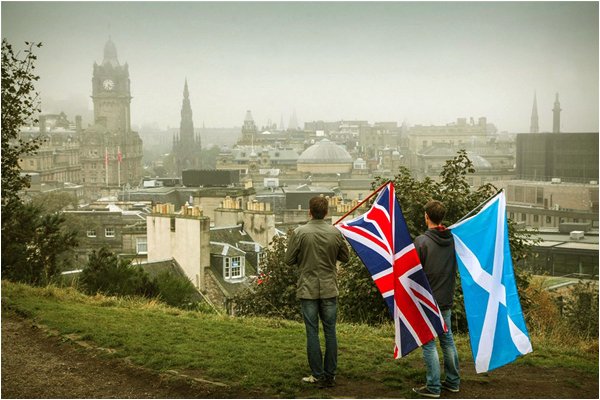Independence, a word that evokes images of rebellion, victory, war, and pride. The United States fought for seven bloody years for the right to govern itself, Haiti lead a violent slave revolt, France faced years of rebellion and turmoil, and now it is Scotland’s turn to choose its future with a vote. However, this chance was spurned by the Scottish people when a majority voted no to independence on September 18, 2014.
Scotland has sporadically been under British rule for over 800 years, starting in 1290 when England conquered the country. It later gained its independence in 1320, but conflicts between Scotland and Britain continued. In 1603 James IV, who had claims to both the British and Scottish throne, united both countries when he became king. This lead to centuries of fighting and uprisings, but the Scottish were eventually defeated in 1746. This defeat was followed by a period of time in which Scottish citizens were treated harshly. They were forbidden to wear the tartan or play bagpipes, some were sentenced to hard labor, and thousands of highlanders were massacred.
Fifty-five percent of Scottish citizens voted against an independent Scotland, for various reasons; focusing mainly on economic and political reasons. David Cameron, Prime minister of England warned against the reasons set out by the “yes” campaign, “But when something looks too good to be true-that’s because it usually is.”
Many believed the economy would suffer if independence was achieved. England is one of the world’s largest economies, which provides a successful market and barrier free trade to Scotland. Scotland would face separate tax and regulatory regimes, which could result in operations moving south for cheaper production; meaning jobs in Scotland would be lost. It would also result in higher prices for basic items, because of trading costs. However the biggest argument against independence is that Scotland would have less influence in the world. England is a major part of the United Nations and the European Union, and Scotland would have a difficult time becoming one of the key countries in either of these.
Forty-Five percent of Scottish citizens voted yes for an independent Scotland. The yes campaign has claimed that it is based on democracy and nationalism. First Minister, Alex Salmond explained, “No one, absolutely no one, will do a better job of running Scotland than the people who live and work in Scotland.”
Scotland is a minority in the British Parliament, meaning decisions often do not represent the majority vote of Scotland. An independent Scotland would be able to make decisions about its own priorities; like healthcare, education, immigration, and welfare. Scotland would also have to deal with less war and weapons. Scotland is currently involved with nuclear weapons because of Britain, something many citizens disagree with. Another plus side is Scotland will no longer be required to fight in England’s wars.
Those supporting independence also claimed the economy would benefit. Scotland has North Sea oil and gas reserves, and the tax revenues have been going to the British treasury. The Scottish government claims the statistics show it could be one of the most prosperous countries if it was allowed freedom.
The arguments of both sides were strong, but it is obvious that a majority of citizens agreed and supports the “No” campaign. For now Scotland will continue to be a part of the United Kingdom, and continue on with the co-dependent relationship it has had with England for centuries.
